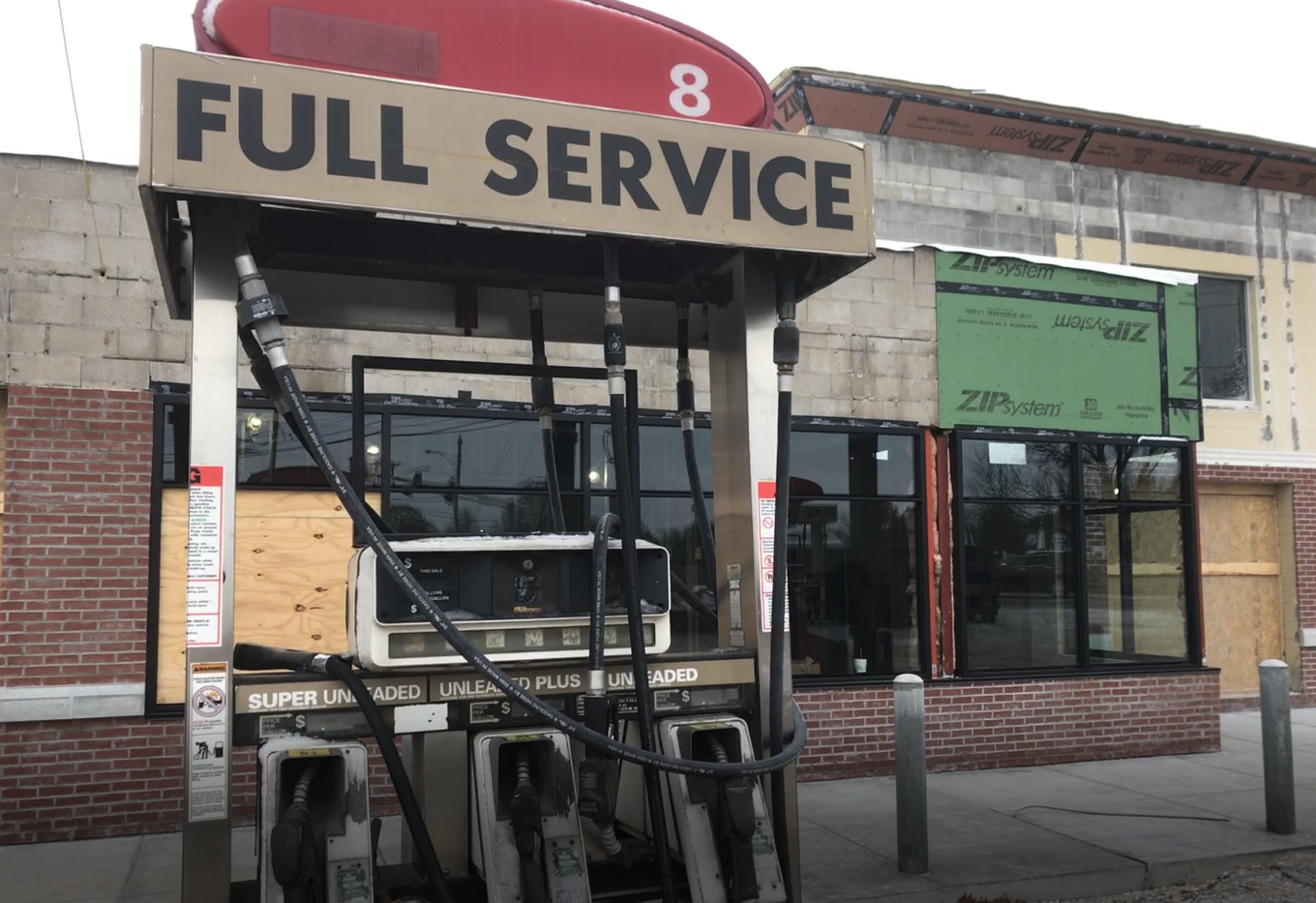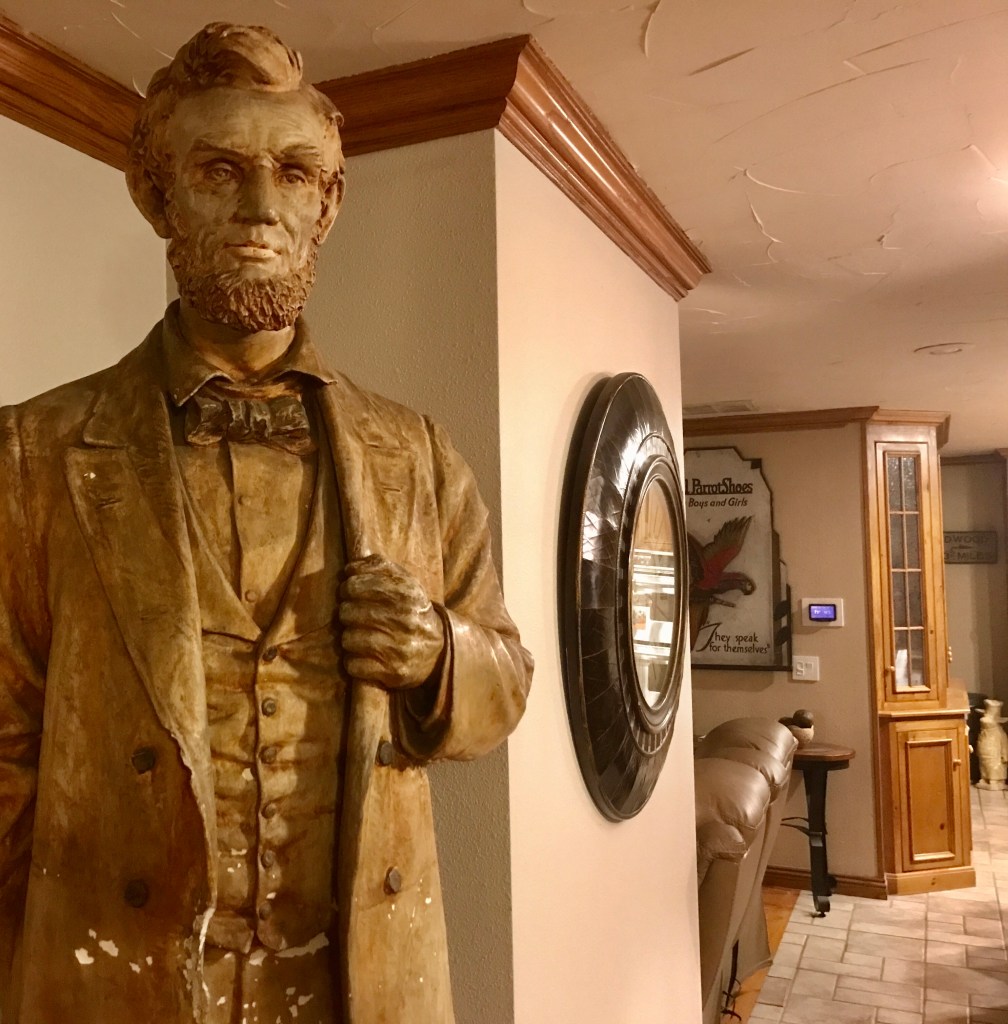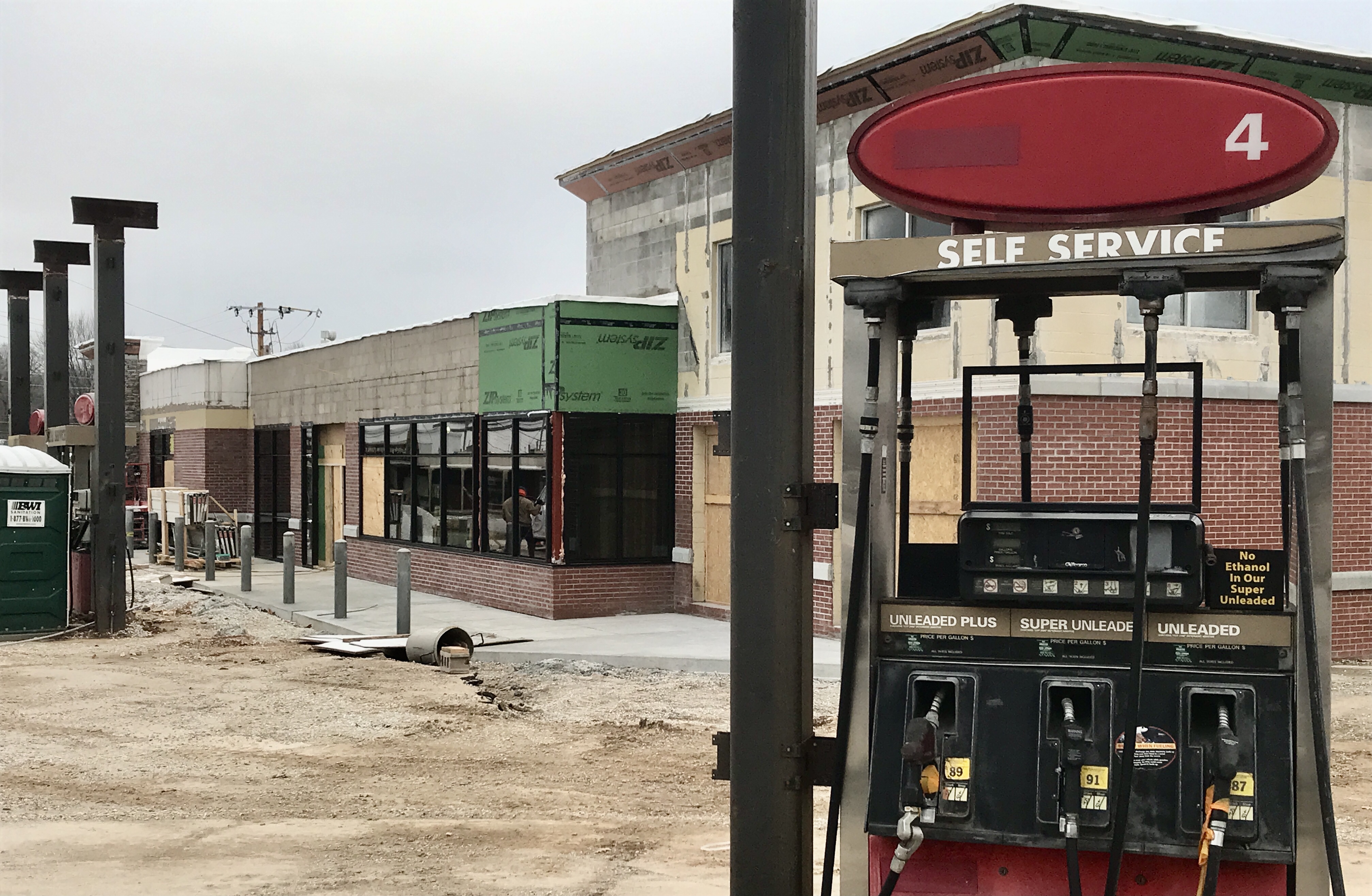Hey Answer Man! The old Brentwood Service Center at Seminole and Glenstone is being renovated into something else. It looks nice. What will it become? Also, in the old station, they had like a 9-foot-tall Abraham Lincoln statue inside. Where is that now? — Jeff Houghton, of Springfield
I'm familiar with the history of the Brentwood Service Center and its owner Chip Wagoner because I wrote about it in 2014, when it was one of the few (if not only) gas stations in Springfield that provided full service, and again in 2021.
For you youngsters, full service is when the attendant — in this case, it typically was Wagoner — would pump the gas for you, check the air pressure of the tires, clean the windshield and duck under the hood to check the oil. You never had to exit your vehicle.
The station also had two self-serve pumps where you could pump your own gas for 40 cents less per gallon.
Seven years later, in April 2021, I stopped by to ask Wagoner if he was worried that a Kum & Go was being built directly across Seminole from him.
No, he told me. He wasn't worried in the least.
A lot of his business, he said at the time, was on the repair side.

He sold the business in 2021
Wagoner, a 1979 graduate of Glendale High School, had toiled at the gas station since he was 11 or 12. The place was built by Texaco in 1955. Wagoner's father, Ed, bought it in 1966, when all service stations were full service.
Although Wagoner told me back then he didn't fret about Kum & Go, he also mentioned he had had a kidney transplant, a hip replacement and a shoulder replacement, as well as lower-back surgery.
Later in 2021, Wagoner sold the business and property, according to county records.
He sold it to Robert E. Wilson Jr., president and CEO of Rapid Robert's.
It's going to remain a gas station, Jeff, a Rapid Robert's gas station.
Lincoln statue will end up in the basement
Last week, Wagoner welcomed me into his Southern Hills home in Springfield. He doesn't live far from where I live.
Right there in the entry was none other than Abraham Lincoln, the towering statue looking down at me from what seemed a heavenly altitude.
“He's going to end up in the basement,” Wagoner says. “He might eventually end up in a museum so he can be fixed up.”


The statue is primarily made of plaster. It has its share of nicks.
Wagoner thinks the head is made of chalk.
Regardless, it's heavy.
He hired someone to move it from the service station to his home.
“It cost me almost $600,” he tells me.
He will once again hire people to have Abe descend to the basement.
Statue is taller than the man was
For the record, Abraham Lincoln was the tallest of our 45 presidents at 6 foot 4, making him a half-inch taller than Lyndon Baines Johnson, according to potus.com.
Wagoner estimates his statue of Lincoln is 6 foot 6 inches tall. It's on a 4-inch base, which gives this Lincoln the physical presence of an NBA power forward.
The base has an inscription that says, “Presented by Schwartz Bros.”
Chip's parents were antique dealers. They bought the Lincoln statue from the Daughters of the American Revolution in Jonestown, Pa., where it was on display, for sale, in the main hall. It went on display at the service center.

The amazing Mr. Lincoln, man of empathy
Your question about the Lincoln statue, Jeff, comes at a most opportune time for me.
I'm in what you might call a “Lincoln phase.” After all, I'm an Illinois native.
I am reading my second consecutive book on Lincoln. I'm well into “Team of Rivals: The Political Genius of Abraham Lincoln” by Pulitzer Prize-winning historian Doris Kearns Goodwin. It was published in 2005.
In the book, I was taken by a description of Lincoln by his Springfield, Illinois, law partner William Herndon.
“He dripped melancholy when he walked.”
Perhaps that's not surprising. Lincoln's mother died when he was 9, and he was raised by his sister Sarah, who died when he was 19. He had a hard early life on the frontier.
One of his sons died at age 4, and another at age 12.

Lincoln had only about one year — combined — of formal education but never stopped reading, learning and studying even the most complex topics, such as geometry.
Kearns makes the point in her book that “melancholy” is not “depression.” It is not as debilitating.
In fact, she says, Lincoln's melancholy was coupled with his rare ability to feel empathy with those he met.
I found it fascinating that not only did Lincoln confound his generals for overturning their orders to shoot Union Army deserters — saying he had already written too many letters to mothers who had lost their sons — but his friends said he could listen to political opponents and fully understand their views and actually empathize with them.
So much so, many have said, he could accurately predict their next political move.
The underdog won, formed a team of rivals
Few in the nation expected Lincoln to win the presidential nomination at the Republican convention in 1860 in Chicago. He had served only one term in Congress.
Three others were far better known nationally, were wealthier and were far better educated.
Yet, Lincoln won and he made sure all three of those rivals — who early in his presidency sometimes privately disparaged him as a type of bumpkin — were on his Cabinet as secretaries of state, treasury and attorney general.
He knew he needed their strengths for the monumental task of winning the war and saving the Union.
It seems so hard to imagine: Empathy — the most powerful political tool.
This is Pokin Around column No. 89.

